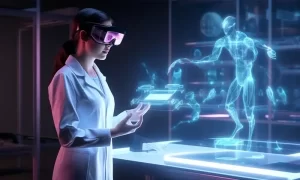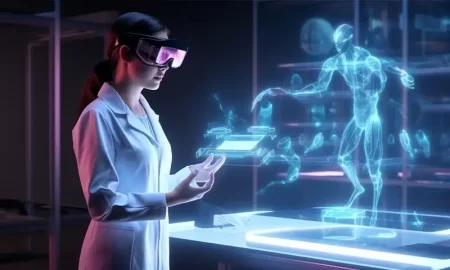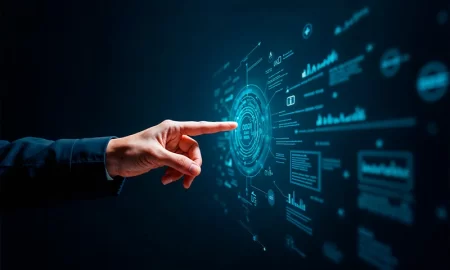Introduction
In today’s fast-paced world, advancements in technology have revolutionized every aspect of our lives, including healthcare. From cutting-edge diagnostic tools to life-saving treatments, healthcare technologies have the potential to transform the way we manage and improve our well-being. In this article, we will explore 10 groundbreaking healthcare technologies that are poised to change lives forever.
Artificial Intelligence (AI) in Healthcare
Artificial Intelligence has emerged as a game-changer in healthcare. By analyzing vast amounts of medical data, AI algorithms can assist in diagnosing diseases, predicting patient outcomes, and even recommending personalized treatment plans. AI-powered chatbots and virtual assistants are also transforming patient care, providing round-the-clock support and information.
Telemedicine and Remote Monitoring
Telemedicine enables patients to consult with healthcare professionals remotely, saving time and improving access to care. Additionally, remote monitoring devices, such as wearable sensors, allow healthcare providers to track vital signs, detect abnormalities, and intervene in real-time, enhancing patient safety and reducing hospital visits.
Precision Medicine and Genomics
Precision medicine utilizes genetic information to customize treatments based on an individual’s unique genetic makeup. Genomics, the study of genes and their functions, plays a crucial role in understanding diseases at a molecular level. This knowledge empowers healthcare providers to deliver personalized therapies, resulting in improved outcomes and reduced side effects.
Nanotechnology in Medicine
Nanotechnology has opened new frontiers in medicine, enabling precise drug delivery, early disease detection, and advanced imaging techniques. Nanoscale devices and materials offer targeted therapies, minimizing damage to healthy tissues and maximizing treatment efficacy. Moreover, nanotechnology holds promise for regenerative medicine, facilitating the regeneration of damaged tissues and organs.
3D Printing in Healthcare
The advent of 3D printing has transformed the healthcare industry by enabling the production of customized medical devices, prosthetics, and even human tissues. This technology allows for faster and more cost-effective production, ensuring a perfect fit for patients and improving their quality of life.
Robotics and Surgical Automation
Robotic-assisted surgeries have revolutionized the field of healthcare, providing enhanced precision, dexterity, and control to surgeons. These advanced robotic systems minimize invasiveness, reduce recovery times, and improve surgical outcomes. With further advancements, robots are expected to play an increasingly significant role in healthcare, assisting in tasks such as patient care and rehabilitation.
Internet of Medical Things (IoMT)
The Internet of Medical Things (IoMT) refers to interconnected medical devices and systems that collect and transmit patient data for analysis and decision-making. IoMT enables healthcare professionals to remotely monitor patients, predict health issues, and intervene in a timely manner. This interconnectedness enhances patient care, improves efficiency, and facilitates early interventions.
Virtual Reality (VR) and Augmented Reality (AR) in Healthcare
Virtual Reality and Augmented Reality technologies are transforming the healthcare landscape, from medical training and education to patient rehabilitation. VR immerses users in simulated environments, aiding in pain management, exposure therapy, and mental health treatment. AR overlays digital information onto the real world, facilitating precise surgical navigation, anatomical visualization, and aiding in medical education.
Blockchain in Healthcare
Blockchain, known for its role in cryptocurrency, has immense potential in healthcare. Its decentralized and secure nature allows for efficient management of electronic health records, ensuring patient privacy and data integrity. Blockchain also streamlines supply chain management, tracks pharmaceuticals, and enables secure sharing of medical research data.
Biohacking and Wearable Technology (continued)
signs, track fitness goals, and gain valuable insights into their overall health. Biohacking enthusiasts leverage wearable technology to measure and analyze various parameters, such as sleep patterns, heart rate variability, and stress levels, allowing individuals to make informed decisions and take proactive steps towards improving their well-being.
Conclusion
The healthcare industry is experiencing a remarkable transformation fueled by revolutionary technologies. From the power of Artificial Intelligence to the precision of genomics, these advancements are reshaping the way we approach healthcare. Telemedicine and remote monitoring are bridging the gap between patients and healthcare providers, while 3D printing and nanotechnology offer exciting possibilities for personalized treatments and regenerative medicine.
Robotic-assisted surgeries are enhancing surgical precision, and the Internet of Medical Things (IoMT) is revolutionizing patient care by enabling remote monitoring and intervention. Virtual Reality and Augmented Reality technologies are making strides in medical training, rehabilitation, and patient education. Blockchain is paving the way for secure and efficient management of health records, while biohacking and wearable technology empower individuals to take control of their health.
As these technologies continue to advance, it is essential for healthcare professionals, policymakers, and individuals to embrace and adapt to the changes they bring. By harnessing the potential of these revolutionary healthcare technologies, we can improve patient outcomes, enhance accessibility to care, and ultimately change lives for the better.
In conclusion, the future of healthcare is being shaped by these groundbreaking technologies. They hold the promise of transforming the way we prevent, diagnose, and treat diseases, ushering in a new era of personalized and patient-centric care. By staying at the forefront of these advancements and embracing their potential, we can revolutionize healthcare and improve the quality of life for individuals worldwide.
Remember, the future is now, and with these 10 revolutionary healthcare technologies, your life may never be the same again.
*Please note that this article is intended for informational purposes only and should not be considered as medical advice. Always consult with a qualified healthcare professional for personalized guidance and treatment options.












